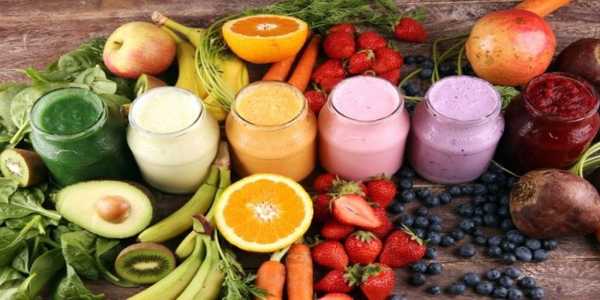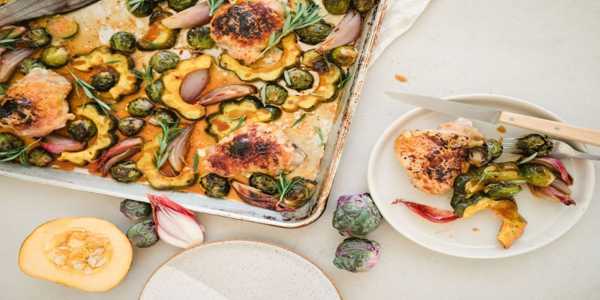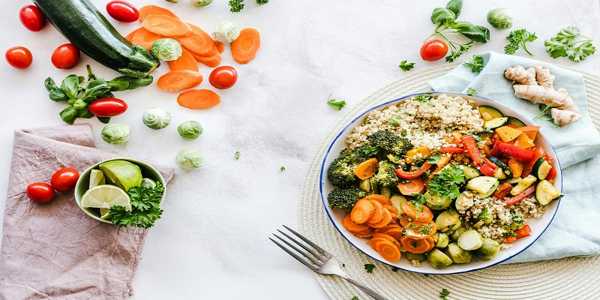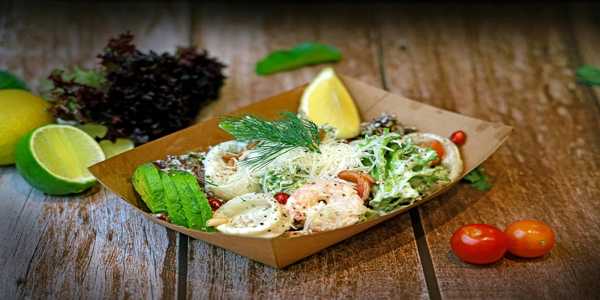The Best Recipes To Maximize Gut Health: Prebiotic And Probiotic Dishes
Gut health isn’t just a wellness buzzword; it’s the foundation of overall health. Often called the “second brain,” the gut plays a vital role in immunity, digestion, and mood regulation. A happy gut is built on a diet rich in prebiotics and probiotics, nourishing the beneficial bacteria in your digestive tract.
Probiotics are live, beneficial bacteria found in fermented foods, while prebiotics are the fibres that feed them. Together, they create a balanced gut microbiome, supporting everything from improved digestion to enhanced immunity. But gut-friendly eating doesn't have to mean boring. These recipes combine delicious flavours with the power of prebiotics and probiotics to keep your gut (and taste buds) happy.
Why Gut Health Matters
A healthy gut microbiome affects more than digestion. It’s linked to clearer skin, better mental health, and reduced inflammation. However, modern diets often lack the diversity and nutrients needed to support a thriving microbiome. Adding foods rich in probiotics (like yoghurt, kimchi, and miso) and prebiotics (like garlic, onions, and bananas) can help restore balance.
The recipes below are created to maximize gut health without sacrificing flavour, proving that taking care of your body doesn't have to feel like a chore.
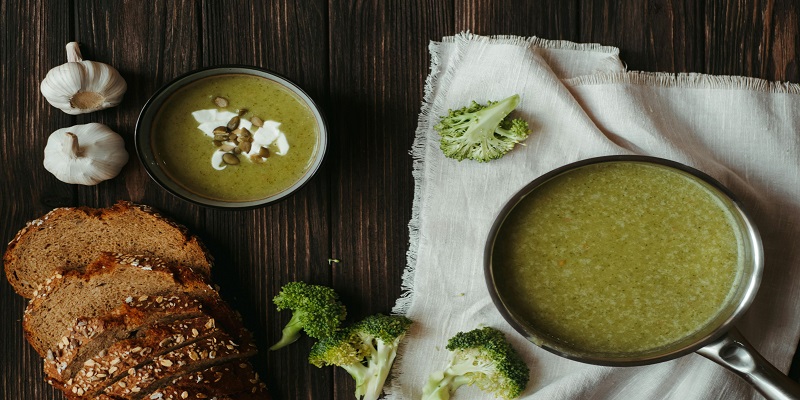
Creamy Garlic And Leek Soup (Prebiotic-Rich)
This silky soup is loaded with leeks and garlic, both prebiotic powerhouses, to support healthy gut bacteria. It’s comforting, flavorful, and perfect as a light lunch or starter.
Servings: 4
Prep Time: 15 minutes
Cooking Time: 30 minutes
Ingredients:
2 tablespoons olive oil
3 leeks, white and light green parts only, sliced
4 garlic cloves, minced
4 cups vegetable broth
1 medium potato, peeled and diced
1/2 cup unsweetened almond milk
Salt and pepper to taste
Fresh parsley for garnish
Directions:
1.Heat olive oil in a large pot over medium heat. Add leeks and garlic and cook until softened about 5 minutes.
2.Add vegetable broth and potato. Bring to a boil, then reduce heat and simmer for 20 minutes until potatoes are tender.
3.Blend the soup until smooth using an immersion blender or regular blender. Stir in almond milk and season with salt and pepper.
4.Serve warm, garnished with fresh parsley.
Fermented Carrot And Ginger Slaw (Probiotic-Rich)
Fermented vegetables are a fantastic way to boost probiotic intake, and this slaw combines the zingy flavours of carrots and ginger with a tangy fermented twist.
Servings: 4
Prep Time: 20 minutes
Fermentation Time: 5-7 days
Ingredients:
4 cups grated carrots
1 tablespoon grated fresh ginger
1 teaspoon sea salt
1/4 teaspoon chilli flakes (optional)
Directions:
1.Combine carrots, ginger, and salt in a large bowl. Massage the mixture with your hands until it releases liquid, about 5 minutes.
2.Pack the mixture tightly into a clean jar, ensuring it’s fully submerged in its liquid.
3.Cover the jar loosely with a lid and let ferment at room temperature for 5-7 days, checking daily to ensure the vegetables stay submerged.
4.Once tangy and fermented to your liking, store it in the fridge and serve it as a side or topping.
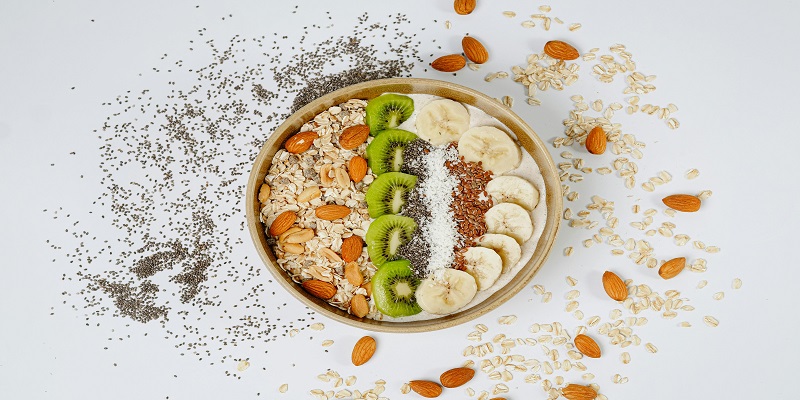
Banana And Oat Overnight Parfaits (Prebiotic-Rich)
Overnight oats are a gut-health dream: the oats provide prebiotic fibre, while the yoghurt adds probiotics for a double dose of goodness.
Servings: 2
Prep Time: 10 minutes
Chill Time: 6 hours or overnight
Ingredients:
1 cup rolled oats
1 cup unsweetened almond milk
1/2 cup plain probiotic yoghurt (non-dairy or regular)
1 ripe banana, sliced
1 tablespoon chia seeds
1 teaspoon honey or maple syrup (optional)
Fresh berries and granola for topping
Directions:
1.Mix the oats, almond milk, yoghurt, chia seeds, and sweetener in a bowl or jar.
2.Layer the oat mixture with sliced bananas in jars or bowls. Cover and refrigerate overnight.
3.In the morning, top with fresh berries and granola before serving.
Miso-Glazed Eggplant (Probiotic-Rich)
Miso is a fermented soybean paste rich in probiotics and umami flavour. This dish turns simple eggplant into a savoury, caramelized delight.
Servings: 4
Prep Time: 10 minutes
Cooking Time: 25 minutes
Ingredients:
2 medium eggplants, halved lengthwise
2 tablespoons miso paste
1 tablespoon soy sauce
1 tablespoon rice vinegar
1 tablespoon maple syrup
1 tablespoon sesame oil
1 teaspoon grated ginger
Directions:
1.Preheat oven to 400°F. Score the flesh of the eggplants in a crisscross pattern.
2.Mix miso paste, maple syrup, sesame oil, soy sauce, rice vinegar, and ginger in a small bowl.
3.Brush the miso mixture onto the cut side of the eggplants.
4.Place eggplants cut-side up on a baking sheet and roast for 25 minutes or until tender and caramelized.
Greek Yogurt Tzatziki With Whole-Grain Pita (Probiotic + Prebiotic)
This versatile dip pairs probiotic-rich yoghurt with prebiotic garlic and cucumber, making it a gut-health powerhouse.
Servings: 4
Prep Time: 15 minutes
Ingredients:
1 cup plain Greek yoghurt (or plant-based yoghurt with live cultures)
1/2 cucumber, grated and squeezed to remove excess liquid
1 garlic clove, minced
1 tablespoon fresh dill, chopped
1 teaspoon lemon juice
Salt and pepper to taste
Whole-grain pita bread for serving
Directions:
1.Mix the yoghurt, cucumber, garlic, dill, and lemon juice in a bowl and season with salt and pepper.
2.Serve chilled with warm whole-grain pita bread for dipping.
Tips For Gut-Friendly Eating
1.Balance Prebiotics and Probiotics: Incorporate both into your diet for a synergistic effect. Prebiotics feed the probiotics, ensuring a thriving gut microbiome.
2.Experiment with Fermented Foods: Try kimchi, sauerkraut, kefir, or kombucha for diverse probiotic sources.
3.Avoid Overly Processed Foods: These can disrupt the balance of gut bacteria. Stick to whole, minimally processed ingredients.
4.Stay Hydrated: Proper hydration helps maintain a healthy digestive system and supports nutrient absorption.
5.Eat a Variety of Foods: A diverse diet promotes a diverse microbiome, which is key to gut health.
Why It Matters
Taking care of your gut isn’t just about avoiding discomfort; it’s about supporting every aspect of your well-being, from mental clarity to immune resilience. With these recipes, you can enjoy delicious meals that align with your gut health goals.
Prebiotics and probiotics don’t have to be bland. They can be the foundation of vibrant, satisfying dishes that make every meal an act of nourishment. So, whether you’re whipping up a creamy leek soup or a tangy carrot slaw, remember: a healthy gut is a happy gut, and a happy gut leads to a happier you.
